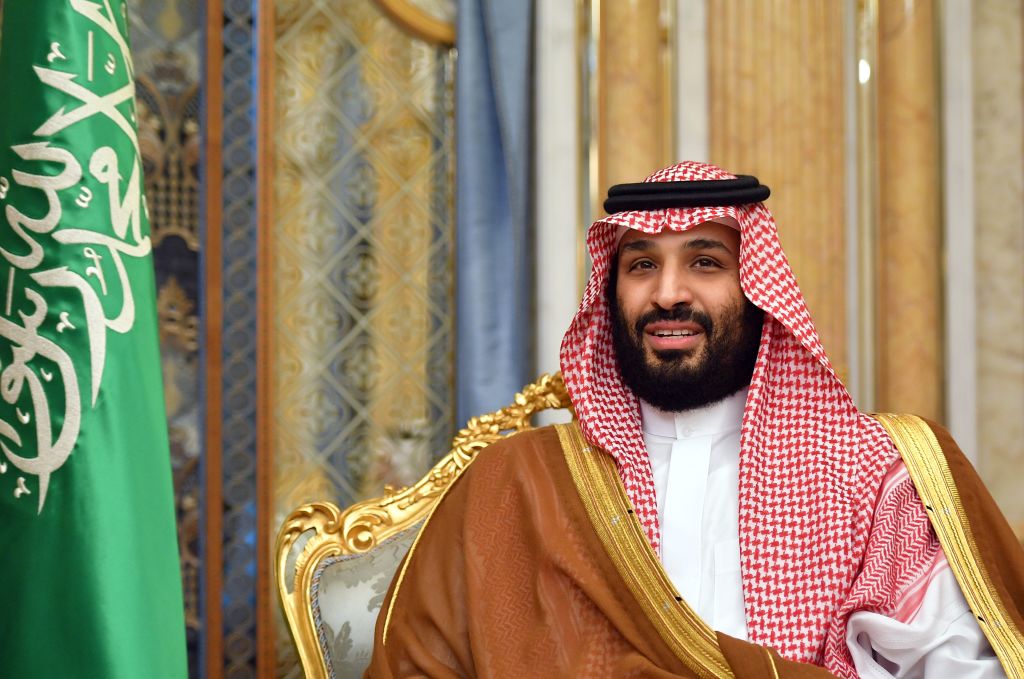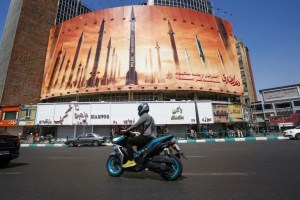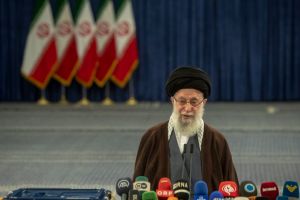After the assassination of General Qasem Soleimani a month ago, Iran offered Saudi Arabia and its Sunni Gulf allies a stark choice. Stick with your newfound ally Israel and risk having your cities bombed to smithereens in the event of military escalation with the United States, or work on a peace deal with Tehran and stay out of the fray. The Iranians had already proven their ability to launch devastating missile strikes against Saudi Arabia’s oil facilities, and the ineffectiveness of the US defensive anti-missile systems supposedly protecting them. Now it is clear that the shaken Saudis have decided to hedge their bets on détente with Iran.
Just look at the kingdom’s reaction to Israel’s announcement this week that its citizens are now permitted for the first time to visit Saudi Arabia on business and tourist trips, on the back of the latter opening up to international tourism. Pre-Soleimani, this would have been hailed as further proof of normalization between the Jewish state and the Gulf Arab monarchies. Both sides had increasingly been boasting of their closer intelligence, diplomatic and cultural ties in the face of what they saw as aggressive Iranian expansionism. However, the response from Prince Faisal bin Farhan, the Saudi foreign minister, to the directive in Tel Aviv was as swift as it was unequivocal. Israelis are not welcome in Saudi Arabia, he said, until there is a comprehensive and lasting peace deal with the Palestinians — in other words, never. As of today, Trump’s ‘peace plan’ for Israel-Palestine looks more hopeless than ever.
In stark contrast, only days earlier Farhan had expressed Saudi Arabia’s potential willingness to hold face-to-face talks with Iran, while his Iranian counterpart Javad Zarif posted an Arabic-language tweet that further opened the door for direct contacts with Saudi Arabia. Meanwhile, back-channel negotiations between the two countries, which had been intensifying in the months before Soleimani’s assassination, have resumed.
The fact that the US is again without Arab allies in its showdown with Iran, thus leaving Israel alone to face the potentially devastating catastrophic consequences if things escalate, has hardly been lost on the mullahs in Tehran. After the Iranian missile barrage on the US base in Iraq in retaliation for Soleimani’s death, Iranian leaders were adamant that any further US military strikes would result in Hezbollah destroying the Israeli city of Haifa, but also that Sunni Arab countries would be targeted if they facilitated any such US actions. The threat against Israel was reiterated yesterday by a top Iranian general. However, having stood down and made it crystal clear that they will not participate in any new US missile strikes, there was no mention of the Gulf Arab countries.
What is also now clear is that the US drone attack that assassinated Soleimani in Baghdad played into Iran’s hands by unintentionally killing Abu Mahdi al-Muhandis, an Iraqi militia leader who had long battled both the Americans and the terrorists of the Islamic State. Still enraged, last week perhaps the biggest demonstration in modern Iraqi history took place in the streets of Baghdad, where protesters echoed a call by a pro-Iranian cleric for all US troops to leave the country. This was followed by a missile barrage by an Iranian-backed Iraqi militia that scored a rare direct hit on the US Embassy in the city. Given this escalation, and that US troops in the country are now sitting ducks, even the most deluded hawks in Washington must now understand that a US withdrawal from Iraq is inevitable, and will have to take place sooner rather later. Their fear, of course, is that Iran will fill the vacuum, but there is no way that can be prevented.
It’s therefore unsurprising that the Saudis are reassessing their strategic alliances, especially ahead of the further turmoil that could come after the US presidential election in November. Whoever takes the White House, the Saudis stand to lose. Apart from Michael Bloomberg, none of the Democratic front-runners have been shy in expressing their contempt for the kingdom. They consider the slaughter of Washington Post columnist Jamal Khashoggi to be unforgivable, and arms sales to Saudi Arabia in the wake of the ongoing bombardment of Yemen as unconscionable. At the same time, they are in favor of a nuclear deal with Iran and the easing of economic sanctions. Donald Trump, on the other hand, is seen in Riyadh as an unreliable ally, and if he is re-elected war between the US and Iran looms as a real possibility. The American media has moved on — with impeachment, the Democratic primary and much else, Soleimani’s killing has already vanished down the memory hole – but for Iraq and its neighbors the consequences of Trump’s dramatic strike are still unraveling — and they don’t look good for US interests. Saudi Arabia and Iran have drawn closer, Israel is isolated, and China and Russia are poised to take full advantage of America’s retreat from the region. After decades of failure, Trump’s America is leaving the Middle East not with a bang but a whimper.



















